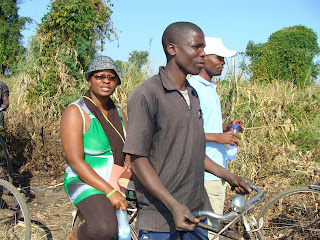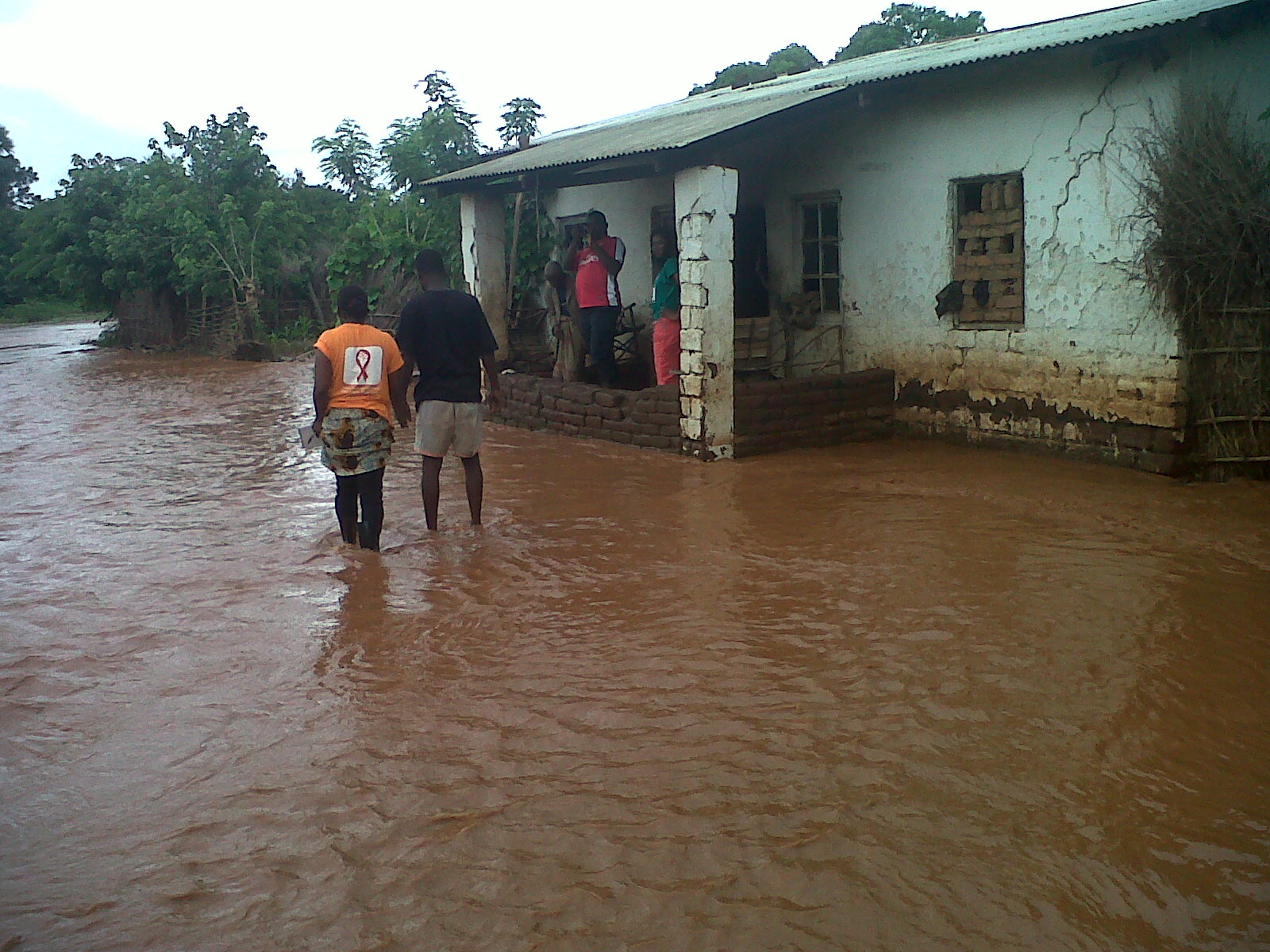White woman in black skin

The time was well past morning. It was cloudy and chilly but with no drizzles insight as is usually the case in winter. The dust was still billowing up—at least that is what Lilongwe is known for, dust.
But on this day, Salima beckoned me and at the mention of Salima my mind started wondering in all directions. I pictured the blue waters, the white sands and myself taking a skin-dip into the water.
I have never been to Salima save for the time I pass through the district when I am going to Mzuzu.
On this particular day, I was lucky in that I was in company of other journalists who are familiar with the place and gave me a briefing on what a Salima had in store especially if you are fun loving
With jokes here and there as Mlaka Maliro kept us entertained, the trip seemed shorter than I had expected.
The trip to Salima was necessitated by Media Council of Malawi in conjunction with Unicef who were touring some sanitation facilities in the district.
We arrived after lunch-time and got down to business straight away.
Facing reality
It is not wrong to dream—especially in colour, this is what the head of state has always encouraged us to do, and I am no exceptional to dreaming in colour. Maybe what was wrong in this case was that I had very (mark very) high expectations before reality hit me in the face, the moment I set my foot in Salima.
It was during a briefing that my coloured dream started fading away and I realised I was in for adventure with a dash of agony, but never the less, I thought they were simply pulling my leg.
In Salima, we were welcomed by several officials from Salima District Assembly and an Italian Non-governmental Organization Coopi that works to mitigate effects of disasters in the district by working with schools which carter as evacuation centres during floods and the community in ensuring that there are sanitation facilities as and when floods strike.
Dennis Kazembe one of the officials from Coopi, told us that our first tour will be Mgando Junior Primary School in Group Village headman Mtauchira and Traditional Authority Pemba’s area located in Salima South-East.
To get to this place, after driving for 20Kms off the tarmac road we had to get off the car and travel by a bicycle. Now that is no fun at all.
There is no road that connects from the main road to the place save for a canoe peddled through the crocodile infested Lifidzi River and other small rivers that surround the area.
In dry season you either have to walk or get a bicycle taxi.
The adventurous and painful ride
The bicycle taxis have definitely found their place in the public transport system. With persistent fuel shortages it would be no surprise if one day these taxis will have MG number plates. In Salima these taxis are called dampas—sorry I have failed all of you. I did not find out what that word means.
For a good 40 minutes, I was on a bicycle carrier though padded but still too hard to sit on. All of us more than 15 set off for Mgando Junior Primary School in T/A Pemba’s area.
The fun of riding on a bicycle was short lived as in came the pain. I lost count of breakdowns I had with the first bicycle I rode on. All the breakdowns were due to a problem with the chain—it needed to be lubricated.
Not wanting to waste time I could walk a distance of five minutes each time the chain fell until enough was enough. I had to call for another “taxi”.
Now this was like jumping from the frying pan into the fire.
Unlike the first taxi which was a bit cosy, this one was not padded I had to sit on metals. To and from Mtauchira on this bicycle was a life experience I will live to remember, it was so painful that by the time I reached Salima Boma my backside was sore making it difficult for me to sit properly. I had to cancel the evening fun.
Lighter moments
There is always light at the end of the tunnel so they say. My light finally shone when I was passing by one of the villages. A child, who looked to me to be around three years old, called me “azungu” (White woman). Now, that was the only time I laughed in the whole adventure. As I passed him I waved at him adding more excitement to the little boy who surely had no idea how a white woman looks like.
The mother chipping in almost immediately corrected the boy.
“Iwe mzungu amaoneka choncho?” (Does a white woman look like her?).
I understood his expression in the context that since I looked more polished than the rest of the village girls, to him only a white woman is supposed to be that polished and dress in pants like I did.
I do not blame him or am I blaming anybody for this.
Maybe I should have worn Chilundu (wrapper)or something Malawian maybe then the boy would have known that I am one of them.
Unfortunately; I haven’t found any dressing code that is more Malawian. As we passed another village, a young boy rushed in front of my taxi.
The mother fearing for an accident shouted:
“Iwe akakugunda matofotofowo akutenga kupita ku chipatala?” (If they hit you will the fat woman take you to the hospital?).
I was supposed to be angry because much as I know I have weight issues, I do not take it lightly if someone calls me fat, still I laughed.
Before I got off the bike to the car, I asked my taxi “driver” whether the area was represented in Parliament and he said yes.
“But he does not come here anymore. In fact, he stays at the Boma. The only time he comes here is when he is campaigning. You have seen the problems that we face maybe you will talk to him si muli ku tauni komweko.”
I promised this man, that I would talk to the MP for this area and I will do that for the sake of the boy who called me “azungu” so that maybe if he comes to the city he will see the real mzungu.


Sellina,
ReplyDeleteThis is an excellent blog. Publicise it and invite professionals to discuss issues with you. Keep the writing habit alive by writing regularly.
Onlinelecturer